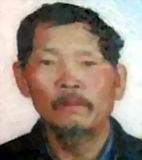|
The 2009 Chengdu bus fire was a mass murder
suicide attack on a bus that occurred in Chengdu, China on June 5,
2009. It resulted in 27 deaths, and 76 injuries.
The arsonist was an unemployed man in his sixties
named Zhang Yunliang,
native of Suzhou, Jiangsu, who was also killed in the fire. Zhang
reportedly threatened suicide because his family refused to continue
supporting him financially.
Fire
The diesel bus was engulfed in flames at around
8:00 am local time. The number of casualties was aggravated by the
rear door not opening, and firefighters and other emergency service
crews being blocked 1 km from the scene by bad traffic.
The exact cause of the fire was not immediately
known by the Chinese government, but the diesel engines were intact
and authorities quickly determined that a mechanical glitch did not
cause the fire.
Gasoline carried on board by a passenger was soon
blamed, and authorities did not rule out arson as the cause as the
investigation proceeded. Several passengers, including the bus driver,
reported smelling gasoline, and traces of gasoline were found in the
bus, which did not use gasoline as fuel.
Following the government probe, investigators
stated that gasoline brought on board by a passenger did indeed cause
the fire, but they could not immediately determine if the fire was a
deliberate act of arson or an accident. The initial probe did rule out
an explosion as the cause of the fire. Pedestrians outside the bus
rushed to help break the windows to allow passengers to escape. PRC
national law does not require buses to maintain hammers for the
purpose of breaking the windows in an emergency, but remains of 3
emergency hammers were found at the scene. The bus was built in
February 2005 and had logged 270,000 km at the time of the incident.
Including those who died in hospital following the
incident, the total death toll was 27.
The arsonist was later identified as 62-year-old
unemployed Zhang Yunliang, a native of Suzhou, Jiangsu province,
who temporarily lived in Chengdu. Mr Zhang had previously threatened
suicide after his family reduced his financial support. The night
before the arson, Zhang told his daughter he wanted to "die
differently". Zhang had been addicted to gambling before arriving in
Chengdu in 2006, and was dependent on the financial assistance from
his daughter.
Reactions
The fire ultimately affected 101 families.
Following the incident, Li Shuguang, the chairman of the bus company
resigned, saying he hoped his resignation would "arouse society's
attention to the safety of public transport."
A bus company in Chengdu promised to financially
reward passengers who report others who bring flammable liquids or
other prohibited items onboard. Chinese cities such as Beijing,
Shenyang, and Guangzhou reacted by reviewing bus safety measures.
The coastal city of Haikou reacted by outfitting
public buses with 400 emergency hammers, but over half of the hammers
were stolen from the buses within three days. As local hospitals were
running low on blood needed for transfusions to help the victims, over
60 Chengdu citizens and 55 soldiers volunteered for blood donations
after an urgent call from hospital authorities.
In the days after the Chengdu bus fire, buses also
caught fire in in Shenzhen on June 13, in Wuhai on June 15 and in
Zhoushan on June 16. There was no evidence initially of any terrorist
connection, and no passengers were killed in the three other bus fires.
The Shenzhen government responded to the bus fires in Chengdu and
Shenzhen by declaring that the city's kindergarten buses must be
equipped with GPS.
|

